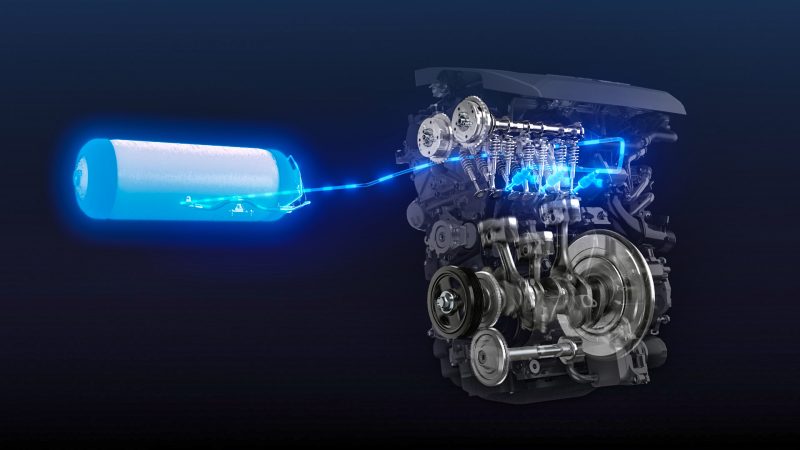Let’s start with the similarities, they both use hydrogen as fuel. Both have tailpipe emissions composed of water vapour, however, HCE also emits NOx in addition to it. Here onwards, all similarities end.
Hydrogen fuel-cell is an engine with no moving parts, which lets hydrogen chemically react with oxygen within its confines of membranes and catalysts. The result of this chemical reaction is electricity, which can be used to power an electric motor, with water vapour being the only byproduct. They are composed of exotic materials such as platinum for catalysts, and also the lack of mass production renders them unaffordable for the masses for now.
Hydrogen Combustion Engine on the other hand features modifications on current conventional internal combustion engines (ICEs) to burn hydrogen inside the combustion chamber. Special injectors produce gases which expand and push the pistons to turn the engine. It is much much cheaper than fuel cells to manufacture — they just need sturdier moving parts as hydrogen is highly reactive, power denser and burns faster than liquid fuel. HCEs will also require special lubricating oil, as unlike petrol/diesel, hydrogen does not have a natural lubricity. All this can be managed at a minuscule premium over existing ICEs. Why isn’t this tech mainstream already? That’s because HCEs are not completely emission-free like the fuel-cell. The high combustion chamber temperatures convert Nitrogen in the air to NOx which can cause chronic respiratory disorders. However, the emission is less compared to ICE. Also, practically the total power produced by HCE to around 85 percent of conventional fossil fuel ICE. Also, HCEs are upto 25 percent efficient compared to fuel cell which are 50 to 60 percent efficient.
Despite the disadvantages, their cost effectiveness and the fact that the industry already has all the tools to mass produce them have incentivised manufacturers to have a go at it. Toyota and Yamaha are together working on a hydrogen powered 5.0 litre V8 engine which will punch out nearly 450 PS. Renault, Hyundai-Kia and Volvo are also hard at work to introduce their examples to the market. Volvo in particular is betting high on HCEs success, especially for their range of trucks and buses.
So which one is better — fuel cell or HCE? For now, HCEs may seem to have an upper hand, since technology is there to mass produce them much more affordably. However as more and more manufacturers jump onto the fuel cell bandwagon, it will become affordable as well.







